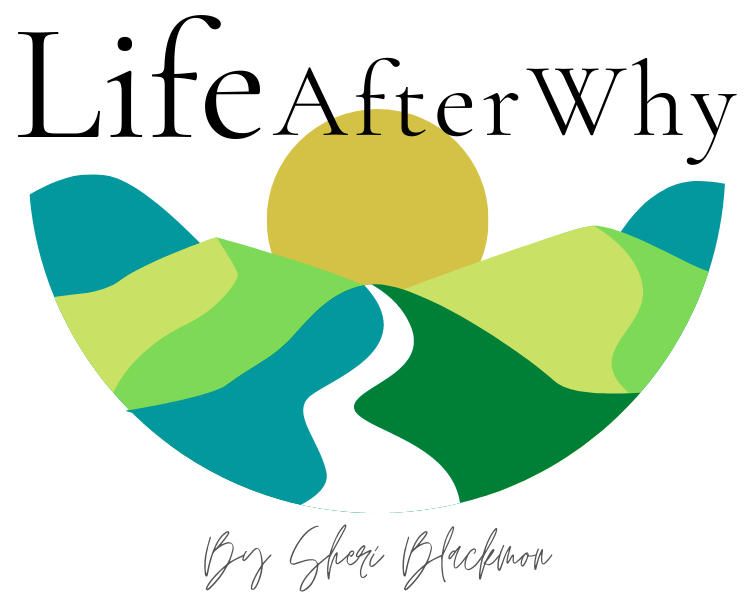Standing on the Shoulders of Giants
On Seeing Through the Murky Waters of Past Sins
I love the experience of having my expectations exceeded. One minute I’ve sized up a situation and think I know what’s coming and the next moment I’m surprised by something unexpected. Such was the case at a lavish outdoor wedding a month ago. Jovial conversations, clinking silverware, and happy music filled the aural landscape. The best man, the groom’s older brother, rose for his speech, a retelling of stories one expects from a best man. Young and articulate, he had us eating out of his hands with funny childhood stories of sibling rivalry between brothers sixteen months apart. Then he dropped a quote that plunged me into a deep and unexpectedly warm pool, like the geyser-fed Firehole River I floated in last week in Yellowstone.
The childhood stories led to the theme that the groom’s character traits would impact his future family just as past generations impacted the groom. He wove in funny narratives of the deceased grandparents’ traits seen in the groom. Then came the quote from G.K. Chesterton’s Orthodoxy, an influential and frequently cited book:
“Tradition means giving votes to the most obscure of all classes, our ancestors. It is the democracy of the dead. Tradition refuses to submit to the small and arrogant oligarchy of those who merely happen to be walking about.”
I immediately resonated with this statement, though I wasn’t exactly sure why I did until I pondered it for a while.
Though Chesterton wrote his book in 1908, he speaks with relevance in today’s climate of cultural chauvinism, which looks at the past with a critical and disdainful eye. An oligarchy is the rule of elites who exercise power in the interests of their own class or social grouping. An oligarchy of “those who merely happen to be walking about” elevates the current moment as superior to the past. Superiority turns to disdain when people discover their forebears’ sins, which disqualify them from offering their shoulders to stand on. Instead of sorting through the good and bad, they throw out the baby with the bathwater. The result is a sense of pride and self-righteousness that fails to recognize one’s own flaws and sins.
Elevating the current moment restricts our scope and vision because we have few, if any, shoulders to stand upon. Chesterton’s quote is like others about standing on the shoulders of giants. Isaac Newton wrote in a 1675 letter to another scientist, “If I have seen further, it is by standing on the shoulders of giants.” Ironically, Newton’s statement traces back to a twelfth century philosopher, who compared people to dwarves perched on the shoulders of giants, saying that “we see more and farther than our predecessors, not because we have keener vision or greater height, but because we are lifted up and borne aloft on their gigantic stature.” Unfortunately, many people today think of themselves as the giants, not little people. They are “the small and arrogant oligarchy of those who merely happen to be walking about” like children pretending to be superheroes.
In contrast, people who live by the democracy of the dead are humble. They know that standing on the shoulders of giants is a necessary part of creativity, innovation, and development. Steve Jobs claimed that “creativity is just connecting things. When you ask creative people how they did something, they feel a little guilty because they didn’t really do it. They just saw something. It seemed obvious to them after a while; that’s because they were able to connect experiences they’ve had and synthesize new things.” A new idea—like those of Newton and Jobs—is only possible because a previous giant opened a new door and made their work possible. They in turn opened new doors and expanded the realm of possibility. Technology, art, and other advances are only possible if someone else has laid the groundwork; nothing comes from nothing. Originality doesn’t really exist, but authenticity does. What about my song, my blog, my idea, or business concept? You connect and synthesize existing pieces into a fresh application that is uniquely yours.
The humility of the democracy of the dead stimulates an awareness of our own shortcomings and sins. This is the heart of the matter. People in this democracy know the flaws of the giants they stand upon. They know the importance of identifying themselves with heroes, villains, and mixed bags of the past, in order not to repeat the past. They know that progress is made not by dismissing the past but incorporating it. When we cut ourselves off from our forebears with superiority and disdain, we risk losing a sense of our own dark side—even evil. As a daughter of a Holocaust survivor, I struggle with this. I have strong feelings of disdain for the Nazis, and rightfully so, but I miss understanding my own culpability, not to mention how and why Naziism developed and how to prevent future Holocausts. The question is how do we sort through the good and bad and retain the good for future generations?
This is a complex but necessary question for all of us. It’s for people who are willing to weigh, sort, and assess the past, not for “the small and arrogant oligarchy of those who merely happen to be walking about.” They claim originality and chase the novelty of the unprecedented to feel better about themselves, but their originality is only the original sin of pride. We need to do better, but how?
Guidance is found in these short words: “Test everything; hold fast to what is good” (1 Thessalonians 5:21 ESV). Throw out the dirty bathwater, but not the baby. Who are your ancestors whose traits you embody? How do they form your future, your family? How can you give them votes today? Stand proudly on their shoulders and look farther ahead.
